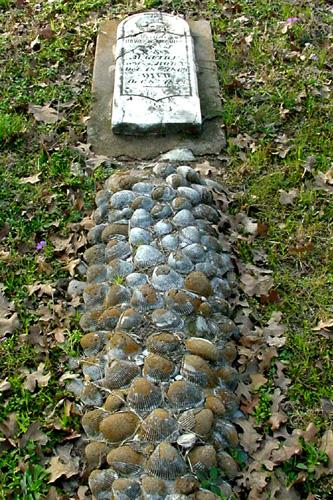Ledbetter, Texas. (original) (raw)
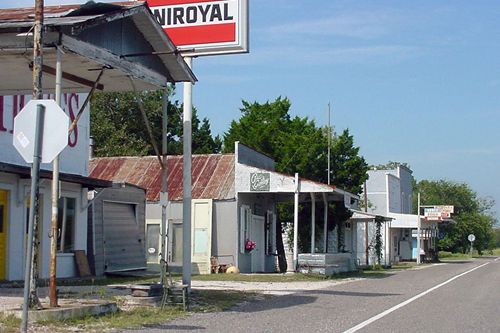
Ledbetter street scene
TE photo, 2004
History in a Pecan Shell
Named for early settlers, Ledbetter had a head start over other Fayette County towns when it was the first town to get a railroad. Ledbetter's heyday seems to have been the 1870s and 1880s. It was a voting precinct and the first town in Fayette County to form its own ISD, incorporating for that very reason.
Ledbetter began waning around 1900, as La Grange's star was ascending. It's hard to compete when the "other town" has the courthouse. But even in decline, Ledbetter still had four stores, two doctors, two druggists, two lumberyards and a blacksmith in 1902. By 1947 the population remained at a healthy 300 people, although the churches were gone and only stores and filling stations remained to serve travelers along highway 290. That year the town dis-incorporated, since the Ledbetter ISD merged with Giddings.
The gravel industry is the major economic engine in Ledbetter today, according to the Handbook of Texas. In 1986 the town had three businesses.
Gotcher Trace historical marker ›
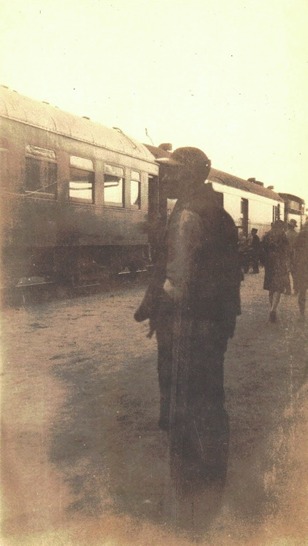
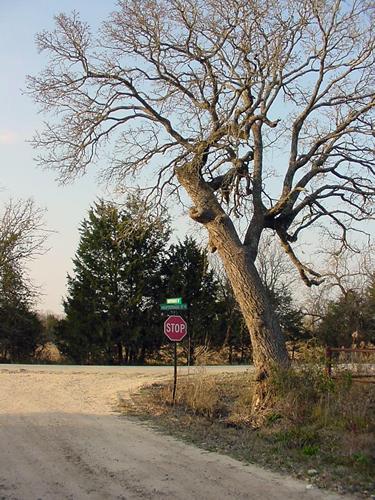
Ledbetter intersection
TE photo
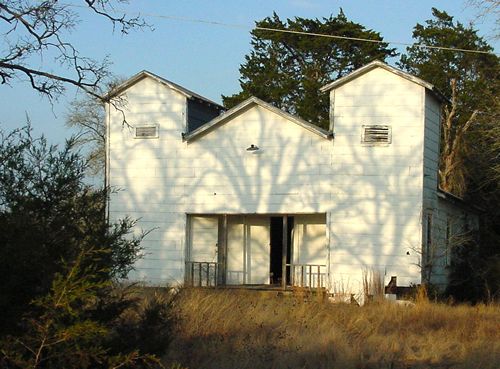
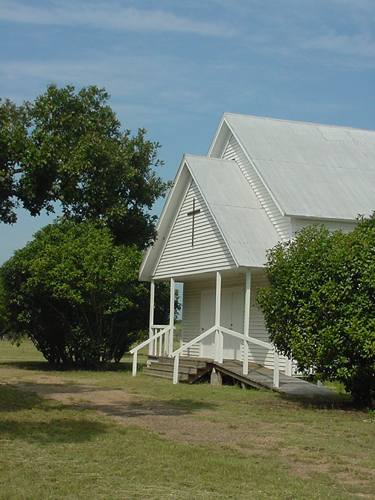
Ledbetter church
TE photo, 2004
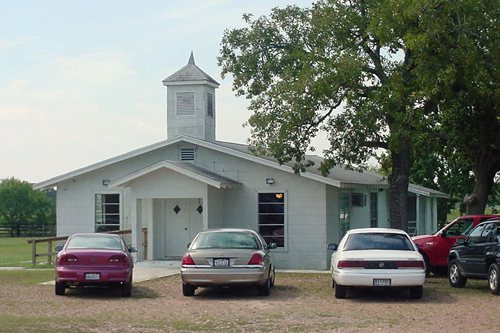
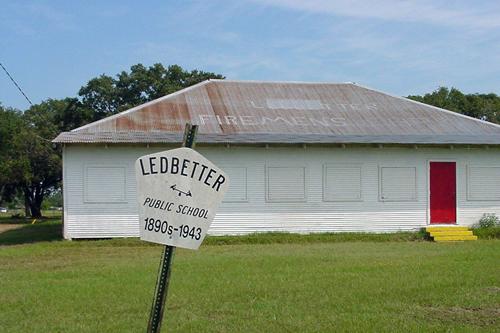
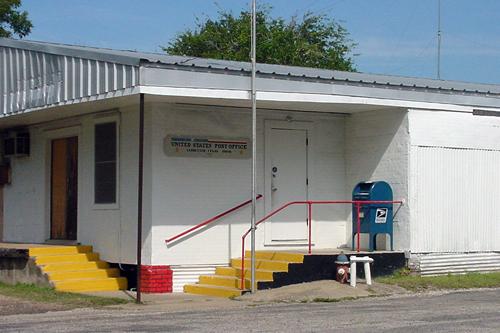
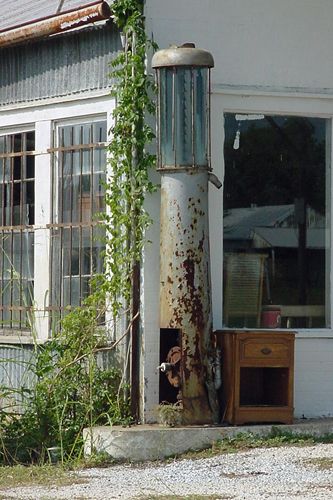
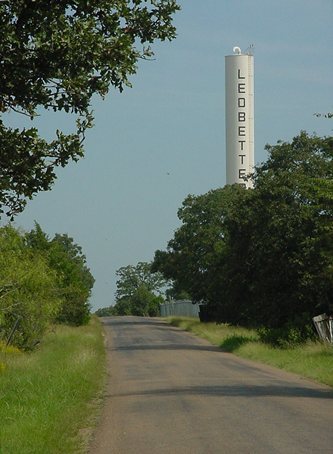
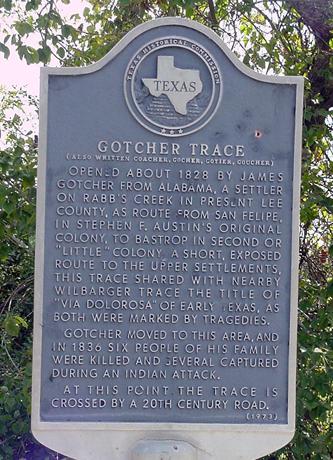
Gotcher Trace historical marker in Ledbetter
on FM1291
TE photo, 2004
Historical Marker:
Gotcher Trace
Opened about 1828 by James Gotcher from Alabama, a settler on Rabb's Creek in present Lee County, as route from San Felipe, in Stephen F. Austin's original colony, to Bastrop in second or "little" colony. A short, exposed route to the upper settlements, this trace shared with nearby Wilbarger Trace the title of "via Dolorosa" of early Texas, as both were marked by tragedies.
Gotcher moved to this area, and in 1836 six people of his family were killed and several captured during an Indian attack. At this point the trace is crossed by a 20th century road.
(1973)
Related Stories:
- Sarah's Dream by Charley Eckhardt
Josiah Wilbarger's Ordeal, Scalped Alive on Onion Creek
Texas Escapes, in its purpose to preserve historic, endangered and vanishing Texas, asks that anyone wishing to share their local history, stories, landmarks and recent or vintage photos, please contact us.
